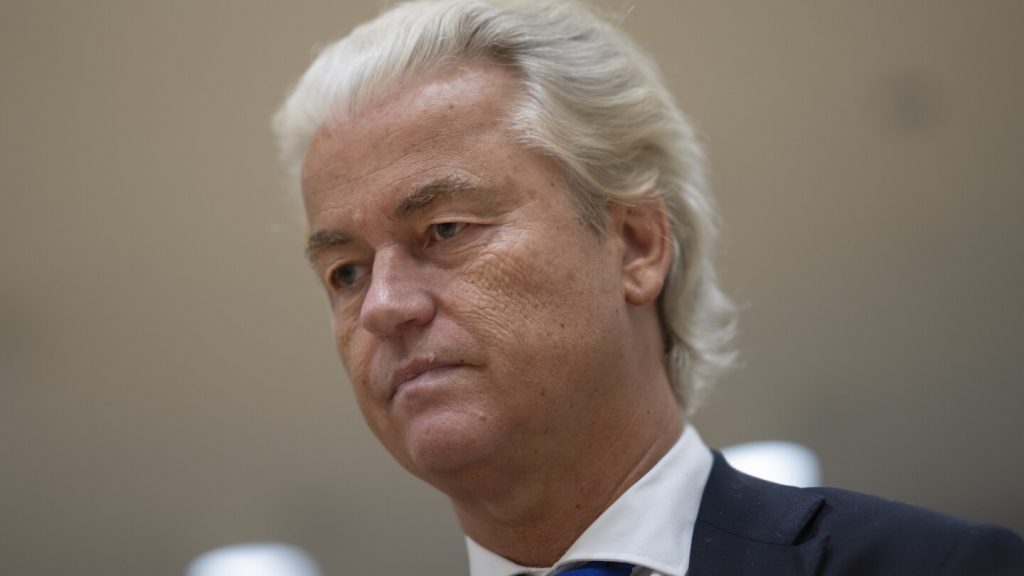A Dutch court convicted two Pakistani religious and political leaders in their absence over calls to their followers to murder anti-Islam lawmaker Geert Wilders. Wilders, the leader of the Party for Freedom, has lived under constant security for nearly 20 years due to threats against his life following his criticism of Islam. The court found Muhammad Ashraf Asif Jalali guilty of attempting to provoke murder and incite Wilders’ murder with terrorist intent. He was sentenced to 14 years, in line with the prosecutors’ demands. Saad Rizvi, the leader of the radical Islamist Tehreek-e-Labaik Pakistan, was also convicted of incitement to murder and threatening Wilders, receiving a four-year sentence, two years less than what prosecutors had requested.
Wilders welcomed the verdicts and sentences from the three-judge panel, calling it a significant moment for Holland. He emphasized the importance of holding individuals accountable for threats against public figures, emphasizing the impact such threats can have on personal privacy and freedom of expression. This is not the first incident involving Pakistani men threatening Wilders. Last year, former Pakistani cricketer Khalid Latif was sentenced to 12 years for offering a reward for Wilders’ death. Another Pakistani man was arrested and sentenced to 10 years in 2019 for preparing a terrorist attack on Wilders. The threats against Wilders escalated after he announced a competition for cartoons of the Prophet Muhammad in 2018, leading to protests in Pakistan and other Muslim-majority countries.
The court highlighted the severity of the threats made by Jalali and Rizvi, stating that such actions not only endanger individual safety but also undermine the principles of a democratic society. While Jalali received a longer sentence due to the gravity of his actions, Rizvi’s sentence was reduced as the court determined that his comments did not constitute a terrorist crime. Wilders expressed gratitude for the court’s decision, recognizing it as a landmark ruling in holding foreign individuals accountable for issuing threats against Dutch parliamentarians. The verdict sends a clear message that incitement to violence and threats will not be tolerated in the Netherlands.
The Pakistani defendants were not present in court to hear the verdicts and are believed to be in Pakistan, where extradition agreements with the Netherlands do not exist. Despite the challenges with extradition, the Dutch court pursued legal action against the individuals involved in inciting violence against Wilders. Prosecutors had attempted to seek legal assistance from Pakistani authorities to serve subpoenas on the defendants, but their requests were not executed. The conviction of Jalali and Rizvi marks a significant step in addressing threats against public figures and upholding the principles of freedom of expression in the Netherlands.
Wilders shared his personal experiences of living under constant threat, describing the impact it has had on his daily life. He emphasized the psychological toll of living with the knowledge that each day could potentially be his last due to the threats he faces. The court’s decision to convict and sentence those responsible for inciting violence against Wilders reflects a commitment to protecting the safety and rights of individuals in a democratic society. The verdict serves as a reminder of the importance of upholding the rule of law and holding accountable those who seek to undermine the principles of freedom and democracy through violence and intimidation.


